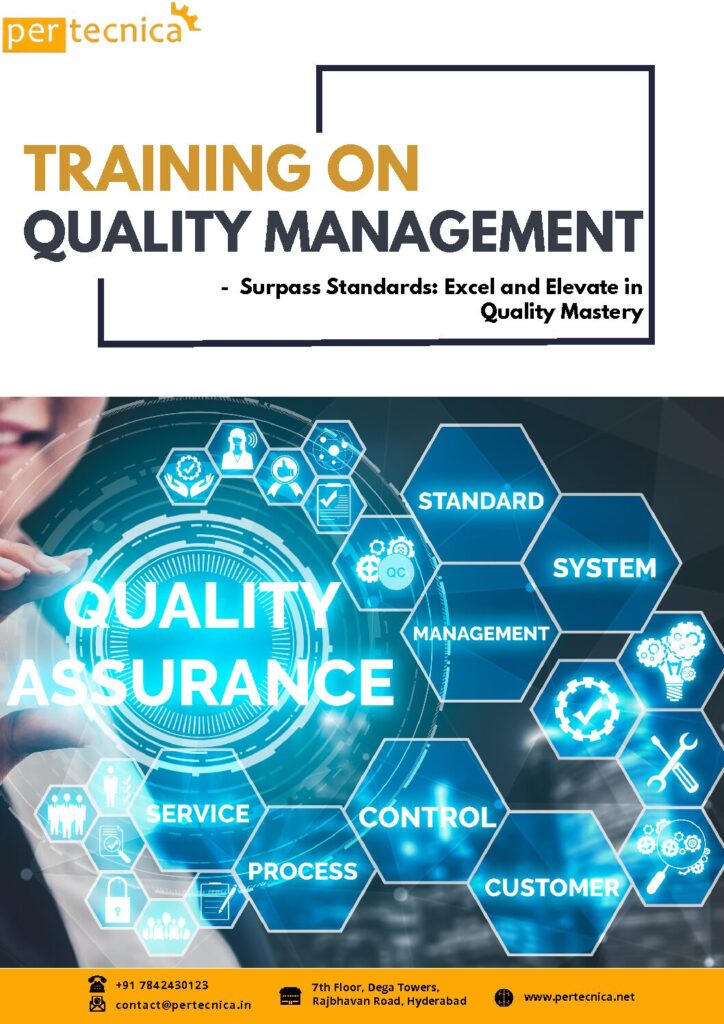Pertecnica Engineering stands as a hallmark in India’s employee training sector, specializing in comprehensive quality management training. Our dedicated services in this realm are meticulously crafted to instill a culture of quality, precision, and continuous improvement within organizations. Through tailored modules and immersive workshops, we delve into quality assurance methodologies, process optimization, and industry-specific standards.
Our approach amalgamates theoretical frameworks with practical application, empowering individuals to implement robust quality management systems and drive operational excellence. Pertecnica Engineering’s quality management training not only enhances technical competencies but also fosters a mindset of quality consciousness, enabling teams to deliver superior products or services, exceed customer expectations, and drive sustained productivity and success in competitive markets.

